Ray Scicluna couldn’t read or write until he was 31 years old, and yet he was the owner of a business turning over $90 million by the age of 27. How did he do it? Through a commitment to creating “magic moments” for every single customer. The Video Ezy founder made a point of exceeding every single customer’s expectation, whether by treating loyal customers to dinner vouchers or by transforming the idea of “overdue fees” into something more positive. This one’s a cracker of an idea.
If your business needs a point of difference, creating magic moments will give your business just that. What’s more – they don’t have to cost a cent! As Ray shows in this interview, all you need is a little out-of-the-box thinking, and a consistent focus on the needs of your customers.
PLUS, I answer a listener question about how to target the right kinds of clients, and I lay down the gauntlet with a listener challenge. Let’s get stuck right into episode 210 of Australia’s #1 marketing show. Go!
Episode Timeline
- 2.15 I answer a listener question about getting to particular kinds of clients.
- 7.00 Make sure that you get to the Small Business Big Marketing Forum and share your ‘weekly wins’.
- 7.30 Netregistry and 99Designs are here to make sure that youir online marketing and design work is the best it can be.
- 10.15 Finding the connection between mindfulness and business success.
- 13.30 Introducing Ray Scicluna, a man who couldn’t read or write until the age of 31, but at 27 had a business turning over $90 million!
- 15.15 How Ray got into the video business.
- 18.00 And then how he lost it all and filed for bankruptcy at the age of 29.
- 23.30 How Video Ezy became a brand – it’s focus on people and ‘magic moments’.
- 25.00 Ray explains why he had such a commitment to staff training with Video Ezy.
- 27.30 How having a guarantee built a lot of business for Video Ezy.
- 31.00 Ray talks about consistency across marketing touchpoints and how they all add up to creating a cohesive brand experience.
- 34.30 How Video Ezy created magic moments with birthday cards.
- 39.00 The importance of dealing with different customers in different ways to meet each customer’s individual needs.
- 45.00 Apple’s magic moment – having an actual retail store.
- 46.00 Listener challenege! Create one magic moment this week and email it to tim@smallbusinessbigmarketing.com
- 47.00 Why loyalty might just be more important in business than logic.
- 51.45 My top three takeaways from this episode.
- 54.00 Inspirational quote of the week!
Resources and Links Mentioned in this Episode
- Ray Scicluna : his official website.
- Getting to the advocates : more on this in Episode 198.
- Netregistry: Get your online marketing sorted
- www.99Designs.com/sbbm: For logo design, brochure design, and more. Grab your exclusive listener upgrade at this link.
- Join the The Small Business Big Marketing Forum today and share your ‘weekly wins’!
Tweetables
Ray Scicluna Interview Transcription
Tim:
Okay, well that was a magical bit of feedback and here is a magical interview. How’s that for segue? I want to introduce my guest. His name is Ray Scicluna. Ray is an interesting fellow. I met him in a conference last week on the Gold Coast that we both spoke at and I’d also previously been told about Ray as someone I should connect with and go and hear speak. And I did. I sat through his session and it was fantastic. How’s this – Ray left school at 13, grew up in the tough western suburbs of Melbourne. He couldn’t read or write until the age of 31, but at the age of 27 he had a business turning over $90 million, but by the age of 29, bankrupt. But then he made a fortune by bringing the Video Ezy franchise to Australia and New Zealand. How’s that? Very old school, the old video stores, but boy did he do a good job with those Video Ezy stores, and his magic, well his secret sauce I should say were magic moment, creating magic moments that surprised and delighted clients. This is a bit of a continuing discussion almost from a previous episode with Joshua Nickels from Platinum Electricians where he talked about those 1 percenters. That really got some traction, that discussion, and this will continue that kind of discussion. Magic moments are wonderful. There’s not enough of them as I said at the start of this episode. So let’s get stuck into it. Here is Ray Scicluna.
Ray Scicluna, welcome to the Small Business Big Marketing show.
Ray:
Thank you very much, Tim, for having me.
Tim:
Raymond, you’re unable to read or write until you were 31. Why start then?
Ray:
Mate, I just wasn’t cut out for school. I found it very difficult and I was on a roll at 23.
Tim:
You were.
Ray:
Yeah, probably made too much money too quickly. I was too young and too cocky. I never looked at studying because it was difficult. I could add though.
Tim:
You could add numbers up, let’s talk about that. At 23, you started your third business that was turning over a lazy $90 million, that’s 9 0 dollars in just 3 years. By 29 you were bankrupt. Firstly, how did you create such a business?
Ray:
It was actually my third business. My first business was when I was 13 as a sign writer and then my second business was a panel beater. I opened a panel beating shop at 17. From 17, at 21 I got into video because I was a movie buff and we went over the United States and we found an old Philips, or the first Philips recorder that came out with the one each band recording format and we decided to open up a video library. From there, I decided to look at wholesaling videos because we couldn’t get enough videos to open up new or bigger stores. I worked through a system and I came up with what was called a copy depth plan to satisfy consumer’s demand on videos. I started leasing videos to retailers and that grew very, very quickly. My accountant became a partner and from there we started to lease probably 14,000 – 15,000 new releases a day for a dollar.
Tim:
So this is a wholesale business that you gave videos to retail outlets, correct?
Ray:
That’s right, yeah. We leased them to them. They rented the videos of us for a dollar where they used to buy them for $138 for a video cassette. We leased it to them for a dollar. Rather than them trying to buy 1 or 2 to satisfy copy depth, they were able to lease 10, 15, 20 at a time for a short period of time and give them back to us. We then would put that into the wholesale division and we set up full wholesales around Australia to start to help stores open with better product.
Tim:
So mate, the cash register was rather busy, filling up on a daily basis. What happened?
Ray:
Mate, I sold to an American firm called IRA in the 80s, I think it was in 83, actually 84, just in that area. I went to Singapore. They brought my wholesale division and they wanted to franchise in Australia. They bought also Focused Video and they wanted to use the leasing concept for their franchise only. We did a deal. It was the best deal that I done in my life. It was unconditional, so I wasn’t allowed to wholesale, I wasn’t allowed to retail, I wasn’t allowed to franchise. We did that deal and within three months of doing the deal and putting pen to paper and getting a deposit, stock market crashed. I think actually Westpac or Bank of Perth called in their funds from IRA. They put me then in receivership as an unsecured creditor and yeah, life went from the very high to the very low very quickly and I had to fight that battle for 18 months in courts and managed to get it back but by that time I’ve already exhausted a lot of funds and I couldn’t get the wholesale division back to where it was. It just came and went fairly quickly.
Tim:
So you went bankrupt?
Ray:
Well what happens is once I did that, that deal and got the business back, I had to then sit with creditors and I negotiated a successful payment plan to get back on to the distribution or the leasing program. I was doing that for probably 8 months. All the creditors agreed. But then Village Roadshow decided to wanting to wipe off their $600,000 through their insurance and claim it as a debt and wipe it off on their taxes. To do that, they had to put me in a bankruptcy. And so that’s the story there.
Tim:
There’s a moment where you had to ring your old man and tell him what happened.
Ray:
Well yeah. At the end of the day the house was put up for sale.
Tim:
Whose house? The family house?
Ray:
Yeah the family home. I called it but he corrected me and said “son, you lost our house, not our home. We still have a house; we just don’t have a home.” That gave me a little bit more inspiration to start life again but also look at it in a different way and I decided then to maybe educate myself, to be a little smarter or brighter in those areas.
Tim:
You’re obviously a positive fellow. It would have been a tough time. Is there a kind of secret to maintain it? Because you could have gone one of two ways – you could have throw the towel in or you could afford back. You got a bit of Rocky about you. You’re sort of a movie buff, you’re a cross between Sylvester Stallone and Al Pacino, I reckon, having seen it last week.
Ray:
Look, I think I’m probably a bit grateful that I was brought up in the western suburbs of Melbourne and I was surrounded by friends and…
Tim:
Fighters.
Ray:
Yeah, well in those days the motto was my life depended on the people around me. I most certainly knew, growing into the business world, that my business depended on the people around me again.
Tim:
Do you still live by that motto?
Ray:
If I had nothing, as my father pointed out to me, he said “son, you’ve been all over the world. You’ve made a lot of money. You employed a lot of people. You’ve had a great journey. At the end of the day, you’re far better and far more knowledgeable than when you started. Take it in your stride and these things bring out the best in people so let’s go.”
Tim:
That’s great advice.
Ray:
Yeah. I said “dad, I’ve gave it my best shot.” He said “you haven’t even begun. You’re 29 years old. Tell me you gave it your best shot when someone’s reading your eulogy.” We rented a house and I have four brothers and one sister, and many cousins or relationships. We moved on.
Tim:
Geez mate, what a great old man. That’s just solid advice. What was that Monty Python line, “you come with nothing, you’re going back with nothing. What did you lost? Nothing.”
Ray:
That’s it mate. I’m pretty good in that area. While I was selling to IRA, I was fortunate enough to learn a little bit about the blockbuster franchise in the United States because I travel there to be able to do that deal and I was going to actually go and live in the United States and work with IRA for a while, setting up a wholesale division there, but when I got back we decided to franchise. We put a hundred retailers on the room and we told them about our concept and they walked away with 70 of them put $20,000 on the table for a territory.
Tim:
Is that how Video Ezy was born?
Ray:
It was actually Fountain Flicks. Video Ezy came probably a year later. I had 70 Fountain Flick stores, franchise, and then Video Ezy a friend of mine had the name and 13 stores and he wanted to join our brand and I took that name and then converted all our stores to Video Ezy because it made more sense.
Tim:
Let’s talk about that because Video Ezy is a wonderful success story and I know you used marketing very cleverly. This is free, isn’t it? It’s always fun to have an old school marketing discussion, Ray. Video Ezy became…for our overseas listeners, it’s kind of like just an amazingly very strong Australian brand name, almost kind of symbolic. It represents the whole of the video retail marketing in Australia. What was your view on marketing back there? What aspects of marketing did you most use?
Ray:
Back in those days, and we’re talking the day I sold our firm 16 years ago and after my father passed away I went sailing and I thought life’s too short so I enjoyed that. But prior that, for the 10 years that we were building that brand, we believe our success was around our people, our young team members and our franchisees. And we wanted to make sure they understood that they were the most important link to the business and they’re at the cold face so they have to be able to what we call create these “magic moments” and a magic moment is nothing more than understanding what the customer really wanted and going out of your way to not only satisfy their needs but to exceed. So most of the people come in and they want to be satisfied or they expect to be satisfied and they’re entitled to be satisfied. That’s what they’re there for. To exceed expectation was to do that little extra. We understood at that very young time in business that whilst we thought we had a marketing division, we actually had a advertising division that was doing all the ads in place.
Tim:
Push, push, push.
Ray:
Yeah. So we had to align ourselves with our training. So our marketing division was all encompassing process and we made sure that marketing included our training. So every time we did a campaign for $1 million, we would do a $100,000 training exercise around the country to make sure that our team members had a buy in. They knew exactly what we are doing and they also knew that they had to deliver the processes we were making, so we needed to get them involved in that area. That’s where we focused but we have to also focus on one message. And we looked at the number of messages and deals that were out in the marketplace and we decided to promote the famous “get it first time, get it free.” That was the Video Ezy guarantee. We went down that path and educated our team members and trained our team members and put a lot time and our training and we then started to make those promises, knowing that we deliver them back at the cold face. We started to create these little “magic moments”, little things like when a customer came in and wanted an old movie that we didn’t have, team members were instructed to ask the member if they wouldn’t mind a moment, they’d ring blockbuster up the road and see if they have that movie for them. And if they did, we’ll get them to reserve it for them. We would ring our opposition to see if a movie is in for a customer that wanted to watch a particular movie. And if it wasn’t there, they’re instructed to write that movie down and we would go out of our way to get that movie in without telling the customer and then deliver that movie to the customer and giving them a call and say “hey, we noticed that you wanted this old classic, this old movie. We know got it in. We’ll put it aside for you.” They are the little things that we focused on.
Tim:
Get it first time, get it free. We haven’t had the guarantee discussion on this show before, though I’ve had it inside the Small Business Big Marketing forum where people are questioning whether they should offer a guarantee. Was it something you needed? Did it cost you a lot of day that guarantee or did it built you a lot of business?
Ray:
It built us a lot of business. When we first started it, we had an idea. And with all good marketing initiatives, you need to probably weigh up, whether it’s a lost leader or a traffic driver, and we decided it was going to be a lost leader, so we would pick one of the best movies of the month and we would buy a lot of those. And we were doing a deal with a distributor who had that so we can get it cheaply because we’re committed to buying 50 copies of the store, of that movie. We would then guarantee that particular movie for that month. And though the perception, because perception becomes reality in marketing. Look at Coca Cola, the real feeling. They never sold a fizzy drink in their life. What happens for us was that it worked so well and we weren’t giving away a lot of free movies because we had the copy depth that we expanded it to 2, 3 and up to 7 titles a month and we were chosen as the first point or the first choice when you wanted a movie. Go down to Video Ezy, if you don’t get it the first time, they guarantee you’ll get it free. You walk in and you look on the shelves, and look some people may be abused the system by looking on the shelves and see if there was any of the movies, if they were all out. And they were all out; they would come to the counter and say “I want that one.” They knew it was out. That didn’t worry us because the numbers, the lower average is said in the box. We had to train our people and train our franchisees to understand that. Yes, to answer your question, a guarantee makes a big difference in business. It’s the same when we speak or I speak now and people say “I’ll give you a guarantee. If you don’t like what I speak about or your audience is not happy, I won’t charge you.” That’s a big call.
Tim:
It is.
Ray:
Have I ever had to not charge anybody today?
Tim:
Not once.
Ray:
Guarantees make…
Tim:
Do you ask afterwards?
Ray:
Yes I do. At the end of the day, I’ll say “how did I go? Was everybody happy?” And you know very well, being there, that the audience is happy because of the amount of comments you get after the event and how many people are coming up to you and shaking your hand or asking for your card or signing your book and so forth, and then they’ll give you the survey. If most people in business have integrity, so when you look somebody in the eye and say “how did I go?” and you could see that person and the audience having a good giggle, you put a lump in their throat, a tear in their eye, and you know that the story you’re telling is genuine. They walk up to you and say “look mate, fantastic. You’re worth it. You got your charge. Thank you very much.” Not a lot of people have that integrity.
Tim:
Ray, did you have a process at Video Ezy to come up with magic moments?
Ray:
We had a training program. It was a full training program. We would go out in what we call clusters and we would train our young people and we would have the same training session over two nights so every single team member would attend and we would do the magic moment presentation. So we would start off by explaining that everything we do at the store is marketing – the way we look, the way we talk, the way we dress. We talk about our uniform; it’s not just about wearing it. It’s about wearing it well. We talked about the atmosphere in the store, the music, the carpet, the shelving. Everything we did was connected to our marketing message. When people walk in, they didn’t need to see so much that the store is in order. They needed to feel it was in order. They needed to see the hump with the bouncing in the young people’s steps. We educated them but more so, not motivated them, we inspired them to do better. And we talk about their lives and what they wanted to be when they grew up, because we created magic moments with our team and that meant that we wanted to listen to their baggage because if their foundation wasn’t good at home, it would affect their productivity back at work. Most people always in business have the philosophy that says “when you start at 8:00, leave your baggage at the door.” We wanted them to bring their baggage in because we weren’t naïve to think if we didn’t, they wouldn’t be talking about it at lunch time. We wanted to help as many the young kids understand that we had a career at Video Ezy as well or they could ended up being a franchisee because 50 of our managers was supported throughout this process of 10 years to open up their own Video Ezy store. They never dreamed at any point that they would get their own business but they showed initiative. Everybody started to understand that it was a people-focused culture, not a customer-focused culture.
Tim:
A couple of things there. One is beautiful consistency of touch points. I love the way you…every single one of those components of walking into a Video Ezy store added to a whole. Individually, a staff member looking good in their uniform, that’s good. But if all the shelves are looking good, if the carpet’s clean, if there are movies playing on the TV screen, the signage is right, that adds up. All of a sudden 1 and 1 equals 11.
Ray:
Absolutely Tim. When you’re advertising on TV, as we were in those days and on radio, a lot of people had an image. We would pick the best people to advertise of course, but what we started doing is using our real people on our TV ads, our real team members, because no good portraying this if you’re walking into a store that didn’t shine. I can’t vouch for them today but I know 16 years ago anybody walking to Video Ezy store, because I have photos of all of them, and they looked every inch a champion because they believed in that whole process. They started creating magic moments. Kids started to look at how to create those moments.
Tim:
Okay, so that’s what I’m interested in. So all of a sudden, you and your management team, I’m guessing, came up with some magic moments like the guarantee, like ringing Blockbuster down the road to see if they had the video if you didn’t, you went out and trained the young people on your team with those magic moments, but there was a point then when all of a sudden you’re starting to get phone calls or emails saying “hey what about this, Mr. Scicluna?”
Ray:
Absolutely. We had young kids take ownership in some of those areas. Some of the things that would come through that made a big difference to our income, so what we were looking for was what was our ‘fries’ with that? You look at McDonalds and they had 20,000 young people simultaneously every second as you whether you want fries with that. What was our fries? How could we be unique but individual at the same time? Young people started to work towards our birthday cards. We used to give out birthday cards to people and everybody was doing that. And so they would turn around and say “look Ray, we got a great idea.” I said “what’s that?” They said “we want to give out birthday cards” and I said “that’s what we do now.” And they said “yeah but we don’t want you to give us a Video Ezy birthday card, we want to go and buy birthday cards.” I said “that’s a great idea. And what do you want to do with them?” And they wanted to send out birthday cards which worked a treat, an absolute treat, because they sent out birthday cards to only males and the males are the ones that appreciated it more than anybody. And people would say “I find that hard to believe.” Well let me tell you what the young kids put in place. They sent out birthday cards to the males, a blank one, with a voucher for a dinner with two with one of our partners in their clusters because we’d be partner up with people that did various stuff, car washes all that sort of stuff; flowers, chocolates and dinners and so forth. And we would give the partners deals at our store so they can market as well. But they sent the birthday card to males with a letter and the birthday card was a lovely birthday card with nothing in it and said “dear Tim, we just want to remind you it’s your wife’s birthday next week. Enclosed a blank birthday card with a dinner for two for both of you. Hope you enjoy.” At the end of the day, they reminded the male that his wife’s birthday was next week and we went and bought a lovely card on his behalf to give out. And we get males coming in saying “oh great mate, can you put our anniversary date in there.”
Tim:
You weren’t giving away dinner for two, were you?
Ray:
We were because we didn’t have to give out a lot of those and we were able to do…
Tim:
Why not? Half your customers are males and a dinner for two; we’re talking a few bucks on a purchase or a lease of a video which is only a few coins.
Ray:
Let’s go through that. The value of our customer wasn’t $2. They were renting 3, 4 times a week.
Tim:
Lifetime value.
Ray:
A year and they were our customer for 5 years. Our lifetime value of a customer is like $12,000. Understanding that, when we go and look at people, especially our top, what we call Ezy Express Customers, which are the high level of expenditure, we would do a deal with restaurants where we would give them heaps of free movie vouchers for their free dinner vouchers. So they might give us 5 dinner vouchers and we would give them $500 worth of free video vouchers for their customers. We contract a lot of our products with these 10 partners that we decided to get in this territory. Partnering up really worked for us because they were able to promote our business to their clients, we were able to promote their business to our clients. It was easy for us because we had a lot of clientele coming in regularly, which is every week 2500, 3000 people come through the door. People wanted to get to that database. It’s easy to be able to come up with some of these deals. One of the young kids from magic moments we had a problem always collecting over dues and it was more like a fine. You come in and you look something and you got $100 worth of over dues, Tim. So one of the young kids renamed that for us and called it extended rental fees and that’s what we went on the war path in our next training sessions creating this, where we could look you in the eye with a smile and say “Tim, you must’ve really enjoyed that movie mate. You got $750 extended rental fees. You could’ve have brought this for cheaper.” We had a little bit of fun with that magic moment but we also realized that people left it in the car, forgot about it if they’re really high, so we put in the plan that the extended rental fees if we got only 10% of those we would make a lot of money, so we went into overdrive with our extended rental fee program. That came from juniors. That lifted our income dramatically. We were looking for all these sort of things but mostly, it was how the teams acted at the time on point of purchase and how they were respectful and how they understood very quickly the personality the person they’re talking to, because we have different people. Some people want to get in and out very quickly. You could see that. And some people want to chat. Again, respect was a big thing, how to deal with the baby boomers and the older generation in those times. Again, that made a big difference especially for the older generation how the younger generation actually treated them to create that magic moment, that’s nothing more than if there’s a line up, eye contact, recognition, a smile, a finger up saying “being with you in a minute”, “sorry” with sincerity. Magic moments are also between team member and team member, praising each other for the good work they did and looking for the best in one another rather than the worst; really easy to find the negative.
Tim:
Ray, it’s almost, it saddens me to say this but as you’re talking and explaining the environment…well it doesn’t sadden me to think that what a wonderful place it would have been to be a young person with your first job at Video Ezy, fantastic grounding. But what it does sadden be is that we don’t get this enough these days. I’m just trying to reflect on times and I’ve stayed at a lot of 5 star hotels like you do when we speak, I buy a lot of things, I like to go shopping. I’m just trying to think of moments where a magic moment that I’ve had in the last 6 months and I’m struggling. I’ll tell you one. I’ll tell you one. Last week we were both on the Gold Coast and I dropped some dry cleaning off at the dry cleaners around from the hotel where we were staying, realized that I wasn’t able to pick it up before I needed it, so I went down to the concierge and said “would you mind picking it up?” He said “yes.” It’s not really actually a magic moment. I would’ve have been disappointed if he had said ‘no.’ Why don’t we see this?
Ray:
Mate, I think what happens is we lose sight in this world that we live in that we talk as much as we used to. So I talk to my children half as much as my father talked to me and he talked to his children half as much as his father talked to him and so on. So we lost the art of conversation and connecting, building relationships. It’s a fast world we live in and sometimes we blame the younger generation but we figure who brought them up and who is bringing them up. I read an article that read that the younger generation did not know the meaning of respect or work ethics today and that article is written in 1839.
Tim:
What are you doing reading newspapers from 1839 out of interest?
Ray:
Well when he had the discussion, I was doing some research to some technology and I wanted to show the technology and I came across that and I thought “wow, what a great thing to have read out now.”
Tim:
So you reckon, it’s your theory that because we’re not speaking enough, not enough face to face contact, there’s less opportunities for magic moments?
Ray:
Absolutely, and there’s not enough one-on-one between coach and team member, in other word staff and employer. One-on-one, I have staff meetings on, I used to have them every Monday morning and we used to sit in the middle of the shop together. We all grab a chair each and sit in the middle of the store while customers are coming in and have our meeting in the middle whilst customers are walking around looking for things because we were creating a magic moment there because it’s a process of osmosis. We were sitting there and absorbing everything around us in the right atmosphere, having a giggle and laugh and looking at ways to be able to go that extra mile. Now when you talk about concierge, you can walk into a hotel and you will read a mission statement or a statement on the back board and then you ask the person or the person behind the counter “oh mission statement, that’s great.” And the person looks at you and says “oh yeah, yeah, that’s what we really stand for and, the boss puts it up there.” What I feel real good about that because he hasn’t put his hand on…he doesn’t believe in the mission statement but I walk in and someone say “well sir let me tell you what we stand for, exactly that. This is going to be the best day of your life. Not only are we going to take your baggage upstairs on the trolley, we’re going to put you on the trolley as well and give you a ride up.” What I want to do is put a smile on your day, just a small one. You’ll deal with men and women, they’re different and we need to respect that. Look at Apple. A perfect example. They had a point of difference. The point of difference was their product and everybody believe you can get a product that no one else can get and they can only buy it from you, then what happens is that company actually becomes a little arrogant in their sales because Apple you couldn’t buy it from anywhere else but Apple in the old days but when they realized that the magic moments were all based in their young people in red and blue, the geeks of the world, when you walk into their environment, now they have more money surplus. They can bail out Greece from bankruptcy. It wasn’t about the Apple computer. It was a combination of feel, look, taste and the people, the people delivering those magic moments.
Tim:
Well Apple’s magic moments and careful mate, you’re not calling my children ugly by saying Apple’s arrogant. I do love Apple.
Ray:
I said that people that have their own product start to become arrogant and sell at a different way. I didn’t say Apple.
Tim:
Yeah right, okay. But Apple’s magic moment in itself is probably the one of the biggest ones I can think of and we almost kind of take it for granted but it’s the only computer brand that actually has retail stores that you can go into and seek help from. That’s a massive magic moment.
Ray:
Absolutely. You don’t need to recognize or be told about it. You actually feel you’re in the right environment. You can feel it and people feel things when they’re in order. They don’t have to actually see it. They don’t have to be told about it. You actually know. My wife comes out a lot of retail stores and she has her arms crossed and her head shaking and I say “what?” she says “don’t even go down there.” She’s dissatisfied and the most unfulfilled emotion today is satisfaction but I went into the store to get satisfied. That’s what I expect. I’m not even satisfied. I haven’t even got to base 1. If I go in a store and expect to get satisfied but the younger people behind the counter actually exceed my expectations by a little, then I think to myself “oh geez.” I feel a bit different. I tell that story time and time again to people. Apple is a big tick for me. I love Apple too, Tim.
Tim:
I’m going to set our listeners a challenge, Ray. And I know you’ll support this, but it is about, they’re all business owners, go and setup or come up with at least one magic moment in the next week and the question that you need to ask is quite simply “how can I exceed my customers expectation?” And go and do it. And if you do it, send it into Tim@SmallBusinessBigMarketing.com on the email and I’ll share it in an upcoming show and I’ll let Ray know too. Ray, your wife has a lovely story about a local petrol station that offer some magic moments.
Ray:
Absolutely. You want me to tell you that story?
Tim:
I do, mate.
Ray:
It’s hard though without the body language.
Tim:
It is, yeah. Okay.
Ray:
That’s alright but I’ll tell you because I think that’s probably one of the most memorable moments that she talks about frequently but most ladies hate the thought of pumping petrol in their cars or lifting up the hood and looking for that little bottle that holds the soapy water to clean the bugs off their windscreen or even trying to check the air in their tire. That’s on a good day, but on the day when it’s pissing down rain, which happens often on the Gold Coast, it becomes even more of a challenge. My wife had gone to a local garage for a number of years and there’s a young lad who works at that garage. He was probably 21 at that time. She would wind down her window just a touch and she would yell out his name. He would come to the window and he’d say “yes, Ms. Scicluna.” Daniel was his name, so he’d come to the window and she would turn around and say to him “do your stuff.” Puts petrol in her car, puts soapy water in the bottle under the hood, he cleans her windscreen, pumps up her tires and then takes her credit card and gets her two bottles of milk and a loaf of bread because that was her request and he comes back and it’s all done and dusted and she’s still in the comfort of her car. How many people or ladies do you think my wife has told about that service station? The ladies are lined up, waiting 15 minutes, to be served by young Daniel. Now that he’s taken his top off and with no shirt on, his line is a lot larger, but he serves ladies to a point that loyalty sets in. They treat the ladies like ladies and treat blokes like blokes. I’m driving home from Brisbane with my wife who is really loyal to that service station and so is her friends. They just keep talking about it, talking about it, talking about it. And I’m driving home and I’ve got 15K left in my tank my lights flashing, and I’m in Brisbane. Daniel’s on the Gold Coast 80K away. I said to my wife “better get some petrol.” It was her car I was driving, by the way. She said “you need to go to Daniel.” I said “darling, I’ve got 15K in the tank and Daniel’s 80K away.” She looked me straight in the eye and says “you need to try.” I thought to myself “this is loyalty at its best.” What about the price of petrol? I brought up. I said “what about the price of petrol?” Surely we need to compare. The service is one thing but price is also a big factor. She said “it’s the same as everywhere else.” I said “it can’t be.” She said “it is. I told Daniel to put $70 in the tank and that’s what Daniel puts in the tank.” Again, it’s about their loyalty. They don’t care about logics. They care about the loyalty. I turn up to the service station the first time. I can see who Daniel is, handsome young lad, serving everybody. And I wind down my window and I whistle out to him “hey Daniel” and he comes bouncing over and I said “mate, fill her up” and he looks at me and turns around and says “what are you, a wuss?” And he said “mate, read the sign.” And the sign says “we look after the women in your life, the rest is up to you” and he turned around to me and said “if you want me to put fuel in your tank mate, you go home and put a bloody skirt on.” But he created a magic moment with me as well. He treated me like a bloke. He treated my wife like a lady. At the end of the day, loyalty sets in and loyalty drive sales. And that loyalty set in because he created magic moments for the right people at the time. It’s sad he’s no longer there. He probably should’ve ended up owning that garage.
Tim:
He certainly should’ve. Mate, that’s a great story. An excellent one to finish on and thank you so much, for sharing quite a personal part of your business journey upfront, Ray, and then getting stuck into what I think is a really important topic for businesses going forward, which by the way don’t have to cost anything; another interesting marketing strategy that just requires a bit of thought. Listeners, I hope you do go and come up with your own magic moment or two. Hey Ray, thanks for being part of the Small Business Big Marketing community.
Ray:
Thank you, Tim, pleasure.
Tim:
I love that song by the Cars, 1980s, love it. It takes me right back; big hair, shoulder pads, all that stuff. Love it! I digress. Hey what about that interview with Ray and the challenge to be set. I want to hear about your magic moments that you develop as a result of it. I want to share my top 3 learnings thanks to 99Designs.com/SBBM and to the very good folk at Netregistry. My #1 learning from it, well actually they’re not in particular order but they could be this time, #1 create magic moments guys. Like we’ve just got to do that. We’ve got to exceed our clients and our customers’ expectations and as a result get talked about. That will create word of mouth and it will create word of mass. Go ahead and start creating magic moments. Make that like #1 point in your marketing strategy, alongside all the other things you’ve got to do, but that would be a good one. #2 what’s your “would you like fries with that?” offer. I think it’s a great question to ask ourselves. Again, being able to upsell people to something more is a good thing. McDonalds have done it for years. It works. And again it’s something we could all inject into our businesses and #3 I love the way Ray talked about touch point consistency. When you walk in to a Video Ezy store, there was this beautiful consistency. The staff looked great, the uniforms, the shelves were all stocked, there was great signage, the place was clean, there were movies playing in the TV screen and it was the same no matter what Video Ezy store you walked into. That’s important. By the way, if you want to get kind of your branding consistency done or design consistency sorted out, that’s a great way to use 99 Designs. They have a brand identity pack where you can get all your stationery and all the different bits and bobs of your marketing touch points done by one designer so there’s this beautiful consistency. There you go. They are my three learnings from my chat with Ray.
My Top 3 Learnings
My top three takeaways from chatting with Ray are:
1. Create magic moments in your business. Exceed a customer’s expectations to create Word of Mouth and Word of Mouse.
2. What’s your ‘Would you like fries with that?’ offer? How can you up-sell?
3. Make sure that you have consistency across all your marketing touchpoints.
Over to you!
Let me know YOUR #1 takeaway from this episode by leaving a comment below.
My guest and myself personally read and respond to every comment.




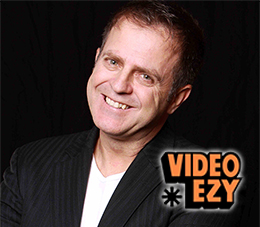

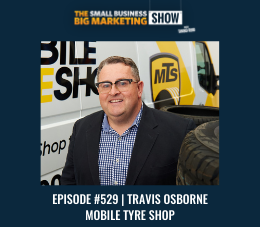
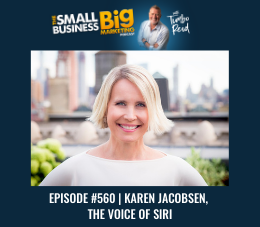
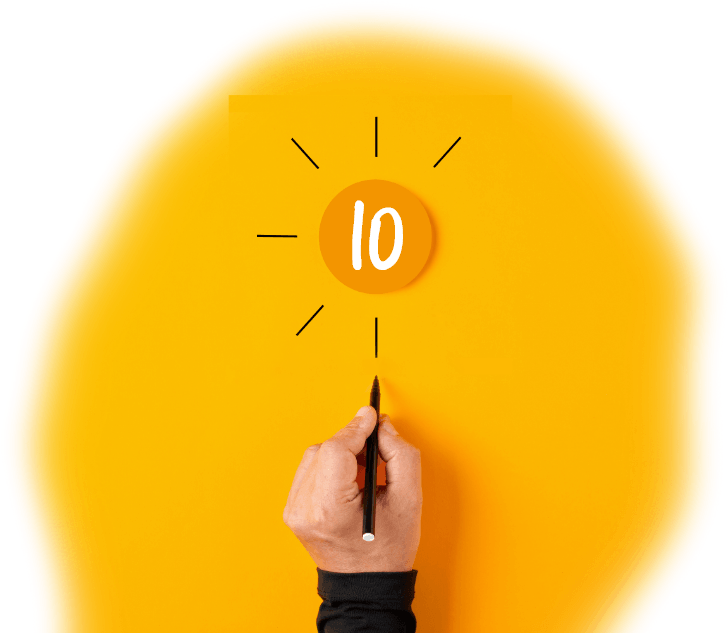
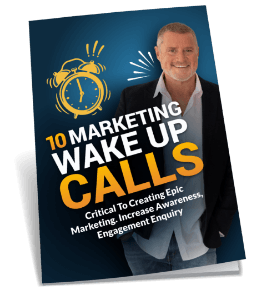
 Grab My 10 Marketing
Grab My 10 Marketing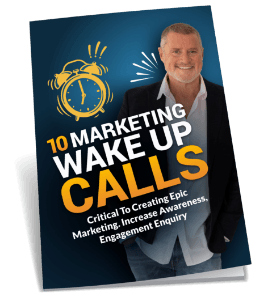
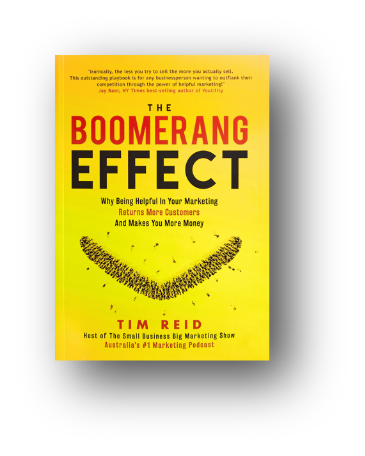
3 thoughts on “210 – How to create magic moments that put a WOW on your customers’ faces with Ray Scicluna”
Ohh Emmm GEEE. This was awesome. Love the guarantee, the partnering with other businesses, the petro station story about Daniel!!! Talk about loyal customers. This is my hot button. I get so excited when I hear other doing these kinds of things. Ray, you are an inspiration. Thank you for this. Thanks Timbo for bringing his story to us.
Thanks Nick. Yes, Ray shared some absolute gold. And like you, I also love discussion around surprising and delighting our customers. It’s such a fun, effective and often inexpensive marketing strategy. Should be more of it, as I alluded to in the chat with Ray.
Thanks Nick appreciate your comments, I believe everyone has a story to tell that is just exciting and inspiring, i am just lucky that I get a chance to tell my. I think the very focus area for me is actually understanding that people make it happen. Can’t create magic moment without them , everyone loves magic moments.. They cost very little to implement, they get you remembered, noticed and above all referred.
Keep well Nick..